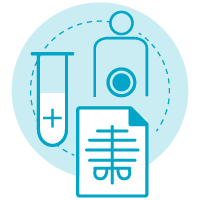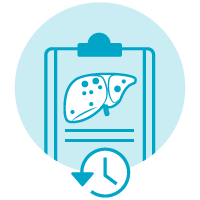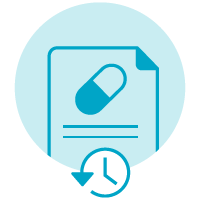Complete Liver Transplant Management
Patients of liver cirrhosis face life threatening complications. Expertise in treatment of these complications is highly specialized and knowledge intensive. Liver transplants are a high risk and complicated surgeries. GridSense Health is designed to support the practitioners in managing these challenges and improve the quality of care for liver transplant patients.
Care Before Liver Transplant
Managing liver transplant patients who are registered for a transplant is a challenge for transplant centers. Each year new patients are registered for a liver transplant. However only a fraction of them get transplanted. Effectively a large number of wait listed patients do not get a liver or wait for a long time. Some patients develop complications of liver cirrhosis and their condition deteriorates so badly that they do not remain fit to undergo transplant surgery. Waiting list mortality for liver patients tends to be high.
Therefore preventing complications in liver transplant patients while they are wait listed is very important for the transplant centers. These are some of the key factors around which GridSense Health is designed.
Management During the Transplantation
Liver transplant surgeries are complex due to the variations in vascular and biliary structures. Surgical complications such as blockage of blood vessels to the new liver, leaking of bile or blocked bile ducks, and initial lack of new liver function are some of the factors that need to be managed quickly and effectively. Picking up the signs of graft rejection as early as possible is crucial to saving the graft and life of a patient. Immediate post-operative monitoring needs to capture many more patient parameters that go well beyond the standard operating procedures of normal ICU monitoring.
Liver Transplant Management After the Transplant
After the discharge a liver transplant patient needs to be monitored very closely, more frequently initially and with reduced frequency after the first six to eight months. As the risk of graft rejection decreases, the focus needs to be on watching over the side effects of immunosuppression. GridSense Health offers the mechanism to manage effective care for patients after the liver transplant. The specially designed transplant care apps for the patient and clinical staff enable life long tracking of patient’s liver related parameters, transplant medication related co-morbidities and long term patient outcomes.
Data Driven Liver Transplant Management
Underlying the GridSense Health functionality is a comprehensive liver specific transplant database. There also is a liver specific disease knowledge base. This knowledge base is a comprehensive repository of symptoms, adverse events, treatments and expected outcomes.

Transplant Database

Liver Disease Database

Treatment Database
Improved Ratings
Improvement in total outcomes of transplants is of immediate significance to any transplant program. A transplant center’s rating depends on many different dimensions of patient care. Centers for Medicare & Medicaid Services (CMS) dictates conditions of participation to transplant programs. The Scientific Registry of Transplant Recipients (SRTR) publishes specific details about the performance of transplant program. GridSense Health is designed taking into account these considerations so that the the transplant centers are able to measure and improve their ratings.
